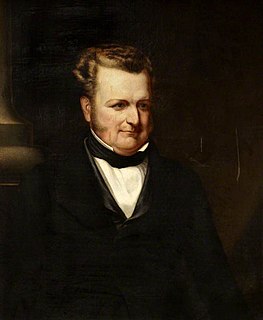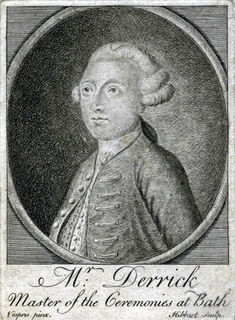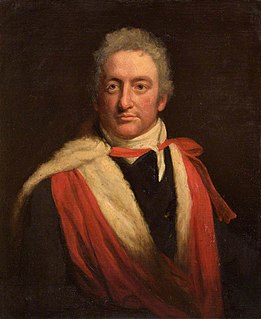Life
Davies was a native of Shropshire. On 19 August 1726 he entered Queens' College, Cambridge as a pensioner, where his relation, John Davies was President. There he became a fellow, proceeding B.A. in 1730, M.A. in 1734, and M.D. in 1748. [2] [3]
Davies practised as a physician at Shrewsbury, and then at Bath, Somerset, where he died at the beginning of 1762. Elected a fellow of the Royal Society on 8 June 1738, he withdrew two years later. His will, bearing date 11 December 1743, was proved on 6 March 1762 by his widow, Jane. [2]

John Frederic Daniell FRS was an English chemist and physicist.
Herbert Davies (1818–1885) was an English physician.

Samuel Derrick (1724–1769) was an Irish author. He became known as a hack writer in London, where he gained wide literary connections.
William Atkinson (1757–1846), was an English cleric, academic, poet and pamphleteer.

Anthony Fothergill (c.1732–1813) was an English physician.

John Davies (1679–1732) was an English cleric and academic, known as a classical scholar, and President of Queens' College, Cambridge from 1717.
Matthew Dobson (1732–1784) was an English physician and experimental physiologist. He is now remembered for his work on diabetes.
Thomas Coxe (1615–1685) was an English physician. He studied at Emmanuel College, Cambridge, graduating with a BA in 1635 and an MA in 1638. He was among the initial fellows of the Royal Society, but ran into money difficulties in old age.
Ambrose Dawson (1707–1794) was an English physician.

Martin Davy (1763–1839) was an English physician and academic, Master of Caius College, Cambridge from 1803. In later life he was also a cleric.
Sir Richard Clayton, 1st Baronet (1745–1828) was an English barrister and diplomat, remembered as a translator.

Sir George Smith Gibbes M.D. (1771–1851) was an English physician and writer.

James Carson M.D. FRS (1772–1843) was a Scottish physician.

The General View series of county surveys was an initiative of the Board of Agriculture of Great Britain, of the early 1790s. Many of these works had second editions, in the 1810s.

Joshua Dixon was an English physician and biographer.

Daniel Lysons M.D. (1727–1800) was an English academic and physician.
John Gamble (1762–1811) was a British Anglican clergyman and military chaplain. From 1796 to 1810, he served as the first Chaplain General to the Forces and head of the Army Chaplains' Department.
John Clark M.D. (1744–1805) was a Scottish physician, known also as a medical philanthropist in Newcastle upon Tyne.

Samuel Berdmore D.D. (1739–1802) was an English cleric, schoolmaster, and author, master of Charterhouse School from 1769.
This page is based on this
Wikipedia article Text is available under the
CC BY-SA 4.0 license; additional terms may apply.
Images, videos and audio are available under their respective licenses.
![]() This article incorporates text from a publication now in the public domain : Stephen, Leslie, ed. (1888). "Davies, Richard (d.1762)". Dictionary of National Biography . Vol. 14. London: Smith, Elder & Co.
This article incorporates text from a publication now in the public domain : Stephen, Leslie, ed. (1888). "Davies, Richard (d.1762)". Dictionary of National Biography . Vol. 14. London: Smith, Elder & Co.









